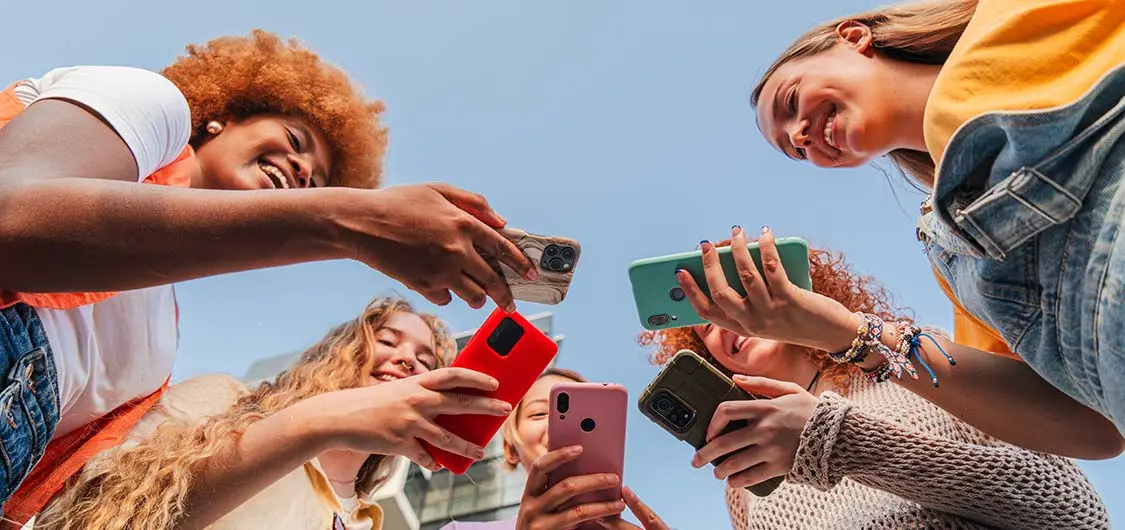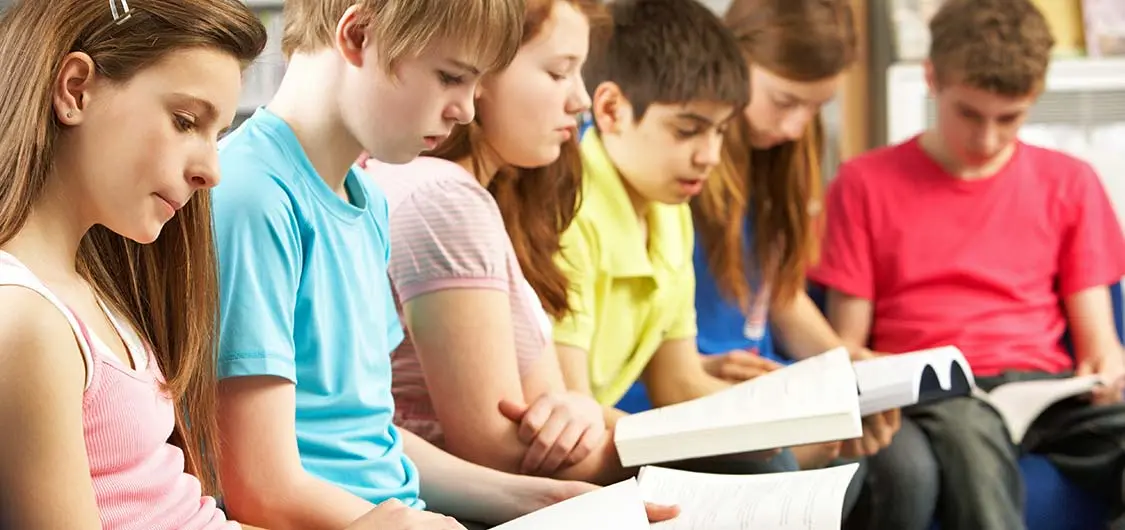Social media and the school library

Use social media to connect your school community with what’s happening in your library. Find advice and inspiration for creating and sharing content on social media. And read about using social media for professional learning.
Why use social media for your library?
Social media lets you have conversations with your audience. This is what makes it different from web pages on your school or library website.
Using social media, you can engage with staff, students, their parents and whānau to:
showcase the library space and the learning, events and celebrations happening there
highlight resources in the library’s collection
promote the library’s services
strengthen home–school and other connections that support reading and learning
build support and advocate for the library as a vital part of the school.
Remember that your library’s social media is part of the public face of your school. It can help build positive perceptions of the school in your community. So, the look and feel should be a good fit with how the school presents itself.
Strategy for social media use
Start by establishing your strategy for using social media. Here's what to record in your strategy document:
Clear objectives or goals that social media may help you achieve, for example:
improved circulation in parts of your library’s collection
a rise in the number of students visiting the library.
Information about your intended audience and how you plan to reach them through social media.
The platforms you’ll use and a plan or schedule for each one that covers:
the type of content you’ll create and how often you’ll post
how you’ll respond to or engage with your audience
how you’ll check progress towards your goals, including using social media statistics.
Using social media to connect with your community — Ministry of Education's guide for planning, getting started with and using social media.
How to create a social media marketing strategy in 9 easy steps — Hootsuite.
Choosing social media platforms for your library
Some platforms are better suited to sharing certain types of content or engaging with your audience than others. Your school's policies or guidelines about social media may also help you decide.
Check with your audience from time to time about which social media platforms they use and what for. This will also help you decide which platforms could work well for your library.
You might use more than one platform to connect with different groups in different ways. For example, you might use:
one platform (such as Facebook) to connect with staff, parents and whānau
another (such as Instagram) to connect with students.
Online safety and privacy
Keep your library’s social media accounts separate from your personal accounts. This allows you to keep your private life private and helps maintain a good work-life balance. It also means the library’s social media accounts can carry on if there are library staff changes.
Create user guidelines for everyone with access to the library’s social media accounts. In your guidelines, include:
links to your school-wide policies about social media
how you'll protect your privacy and that of your students and staff
account user credentials and other security information, including making changes to users
using content created by or showing other people, for example:
checking if you have permission to share photos of students or show their work
ethical reuse or sharing of material covered by copyright
what is and is not appropriate content for your library’s social media channels.
What to post
Creating content and updating your social media channels takes time. Keep it manageable by finding easy ideas for posts.
Create a bank of material you can quickly turn into posts, such as:
photos of book covers — for example, what’s new in your library, books with a similar look, books by a particular author
student voice — one-liners from library users — for example, recommended reads or reasons they love the library
short quotes from popular novels
fascinating facts from non-fiction books
photos or short videos of your library space — for example, great spots for reading, studying or socialising.
Borrow from other libraries’ posts. As well as ideas for your social media, you may find books to add to your collection, inspiration for displays and activities, and ways to advocate for your library.
Links for more information
Read our blog post — Getting your school library out there. The sections about connecting with staff, students and the school community include ideas you could develop as social media content.
More reading:
Instagram guidelines for libraries — Ned Potter.
The big list of no-fluff social media post ideas for schools — Cursive Content.
23 social media ideas to keep your brand — Sprout Social.
Some school libraries on social media
Here are some school libraries with active and engaging social media accounts. You could look at who they follow, and who follows them, to find more examples.
Glenthorne High School Library — blog.
Great Valley High School Library — Instagram.
Kerikeri High School Library — Instagram.
Massey Primary School Library — Facebook.
Southwell Library — Instagram.
Wellington Girls’ College Library — Instagram.
Social media and library staff development
Professional learning and networking
Social media can help your library team:
keep up-to-date with publishing for children and young adults
find information about developing and delivering great school library services
discover new ways to encourage students' reading
connect with others in the school library field for inspiration and support.
Library and publishing industry accounts on social media are usually public. This means you can search for and access lots of useful information without installing an app or having an account. But if you want to engage with others, or make it easy to save or share information, you’ll need to create an account.
Libraries & Learning — National Library Services to Schools' account on X (formerly Twitter).
Booksellers NZ — Instagram.
Great Library Displays — Instagram account of Julie Overpeck.
Madison's Library — librarian, Madison Dearnaley, blogs about books, school libraries and librarianship.
Read NZ Te Pou Muramura — Instagram.
Don't Shush Me! — librarian Kelsey Bogan blogs about school libraries and using social media, including Instagram and TikTok.
Social reading
Knowing your library's collection well and suggesting books for readers that they'll enjoy (‘readers' advisory’) is a key part of your library role.
There are many websites and apps built for readers and reading communities. Search online for ‘social reading apps’ to see what's available. These apps are useful readers' advisory tools because they can help you:
find book recommendations
organise books in various ways, for example, using lists, tags or virtual bookshelves
see what others are reading and read their reviews
keep track of your own reading.
Podcasts for school librarians
Podcasts are related to social media, and episodes are often shared that way. They are another valuable tool for library staff professional development.
Here are some podcasts for or about school libraries and library staff:
SLANZA Sessions — school libraries, reading and literacy in Aotearoa New Zealand. Presented by SLANZA Central.
Kiwi Kids Book Chat — New Zealand children’s literature, authors and illustrators. Presented by Penny Walch and Julie Huggins.
School Librarians United — USA series with issues and challenges of running a successful school library. Presented by Amy Hermon.
The Portable Magic Dispenser — UK series with library lessons, books and more. Presented by Lucas Maxwell.
Find out more
BookTube, Bookstagram and BookTok: How to find social media’s best books content — article on The Spinoff.
Engaging with whānau and the community, Tāhūrangi | New Zealand Curriculum — information and examples of ways schools can engage with their communities using digital technologies.
Teachers and Instagram: A risky mix? — an article from the Office of the Privacy Commissioner (NZ), with advice about appropriate sharing of images and video online.
Teens, social media and technology 2023 — a report from Pew Research Center's study about teenagers’ use of digital devices, social media and other online platforms.
It’s Complicated: The Social Lives of Networked Teens by Danah Boyd, Yale University Press (2014) — a great read for secondary school librarians wanting to learn more about teen social media use.
Related content

Social reading and book clubs
Book clubs are a great way to engage students with reading and help build a reading culture at your school. Explore options for setting up and running a book club. Find ideas for discussions and activities your book club will enjoy.